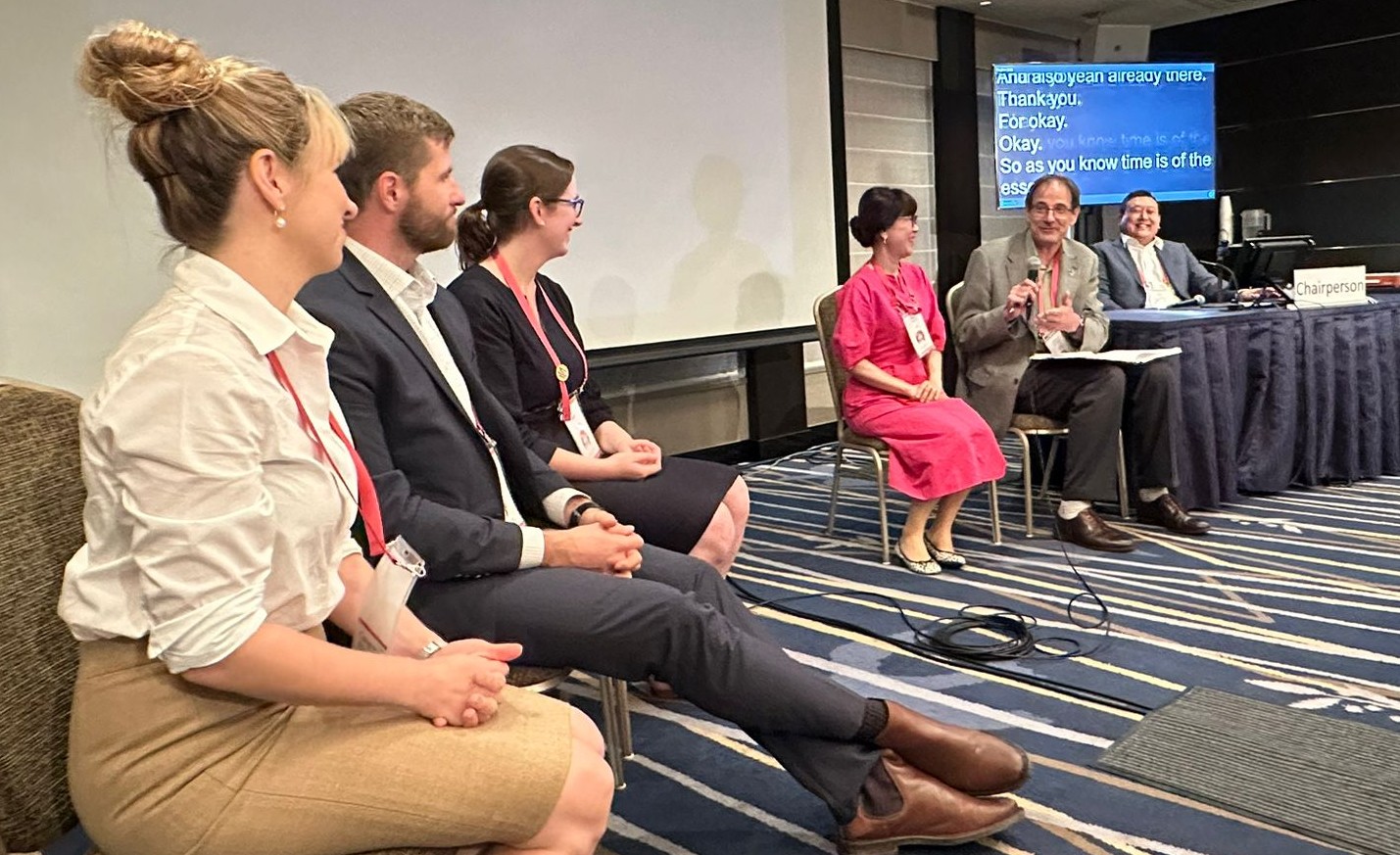The WHO Centre for Health Development (WHO Kobe Centre – WKC) played a central role at the 23rd World Association for Disaster and Emergency Medicine (WADEM) Congress held from 2–6 May 2025 in Tokyo, Japan. Under the theme Advancing Health EDRM Strategies for Disaster Resilience and Preparedness, WKC co-organized a series of high-level events that brought together over 200 global experts, policymakers, and practitioners.
WKC's contributions included a full-day pre-conference workshop and three thematic sessions highlighting the Centre’s commitment to strengthening research and policy on Health Emergency and Disaster Risk Management (Health EDRM).

Building Research Capacity: From Idea to Protocol
On 2 May, WKC convened the “Research Design Canvas Workshop,” a hands-on training aimed at enhancing research capacity in Health EDRM. Using the WHO Guidance on Research Methods for Health EDRM, participants refined their research questions, selected appropriate methodologies, and received feedback from seasoned experts across academia and humanitarian response sectors.
“This workshop was not only about methods. It was about fostering a research culture that bridges science, practice, and policy,” said Dr Ryoma Kayano, Technical Officer at WKC and lead coordinator of the workshop.
WHO Sessions: Driving Global Health EDRM Agendas
WKC also led three WHO-hosted sessions from 3-4 May focused on emerging challenges and opportunities in disaster health governance.
- Session 1: Risk-Informed Governance (3 May) emphasized integrating disaster risk considerations into national governance and health system planning. Experts discussed institutional leadership, legal frameworks, and multisectoral coordination as keys to strengthening resilience.
- Session 2: Mental Health and Psychosocial Support (MHPSS) (4 May) highlighted the urgent need to scale up MHPSS in emergencies in light of the 2024 WHO resolution on strengthening MHPSS systems. Speakers shared lessons from the COVID-19 pandemic and recent natural disasters, emphasizing the importance of community-based approaches.
- Session 3: Research and Science in Health EDRM (4 May) featured WKC’s ongoing efforts to promote operational research, including evidence generation in Fukushima post-2011 and global partnerships through the WHO Health EDRM Research Network.
“These sessions served not only as platforms for sharing research, but also for forging new collaborations to turn evidence into action,” noted Dr Qudsia Huda, Head of Disaster Risk Management and Resilience at WHO Headquarters.
Advancing Global Collaboration and Resilience
WKC's engagement at WADEM 2025 reflects its broader mission to promote evidence-based approaches for disaster preparedness and health system resilience. Through international partnerships and strategic research initiatives, WKC continues to support countries in building stronger, more responsive health systems for all hazards.
For more information on Health EDRM and upcoming activities, visit the WHO Kobe Centre website.
